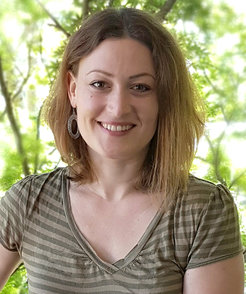Valérie Hilgers – new group leader at the Max-Planck-Institute Freiburg
Valérie Hilgers joins the Max Planck Institute of Immunobiology and Epigenetics in Freiburg. Starting in October 2016, she will be head of a newly established Max Planck Research Group. The team will investigate gene regulatory mechanisms that control the development and function of neurons.

Dr. Valérie Hilgers starts as a new group leader at the Max Planck Institute of Immunobiology and Epigenetics in Freiburg in October 2016. The biologist and her team are investigating gene regulatory mechanisms that control the development and function of neurons.
Born in Saarbrücken, Germany, Valérie Hilgers completed her doctorate at EMBL in Heidelberg and the Temasek Life Sciences Institute in Singapore. Afterwards, she was a postdoctoral fellow at the University of California in Berkeley, USA.
A closer look at RNA in neurons
Neurons are extremely complex cells whose functions, such as receiving, processing and transmitting signals to muscles or glands, are strongly based on gene regulatory mechanisms. These processes control the activity of genes in all cells, for example, when the information from a gene is used in the synthesis of a protein by means of a RNA-mediated intermediate step. It is well known that many neurological disorders are associated with malignant RNA regulation in the brain.
The newly founded research group of Valérie Hilgers at the Max Planck Institute is particularly interested in a specific part of messenger RNA (mRNA), that follows the actual protein coding region: the so-called 3’ untranslated region (3’ UTR). “In my laboratory, we are concentrating on the lengthening of the 3’ UTRs in hundreds of mRNAs during embryonic development. This lengthening occurs exclusively in neurons, but its function is unknown”, says Valérie Hilgers.
Fly brains against neurodegenerative diseases
It is further important that specific mRNAs have extremely long 3’ UTRs and encode many developmental regulatory proteins. The team would like to explore the functions of this particular mRNA region in neurons, and more generally understand the influence of RNA processing on neuronal development and function.
To do so, Valérie Hilgers and her colleagues rely on the model organism Drosophila melanogaster. They profit from its genetic and experimental tractability. The fruit fly was one of the first model organisms used in genetic research, and continues to be one of the most relevant. Fruit flies and humans share amazing similarity with regard to genes and physiology. By means of nervous system biochemistry, high-resolution mRNA imaging, genetics and transcriptomics as well as behavioral experiments, the researchers aim to develop a comprehensive understanding of the functional and mechanistic effects of 3’ UTRs in neurons, with the long-term goal of contributing to a better understanding of neuronal diseases in humans.
CV
Valérie Hilgers, born 1982, studied Biology at the Saarland University in Saarbrücken, Germany and at the Ecole Normale Supérieure, Paris, France. She earned her PhD at EMBL Heidelberg, Germany and the Temasek Life Sciences Institute, Singapore. From 2010 to 2016 Valérie Hilgers was Postdoctoral fellow at University of California, Berkeley, USA in the Department of Molecular and Cell Biology. Since October 2016, Valérie Hilgers is group leader of a Max Planck Research Group at Max Planck Institute of Immunobiology and Epigenetics in Freiburg, Germany.






